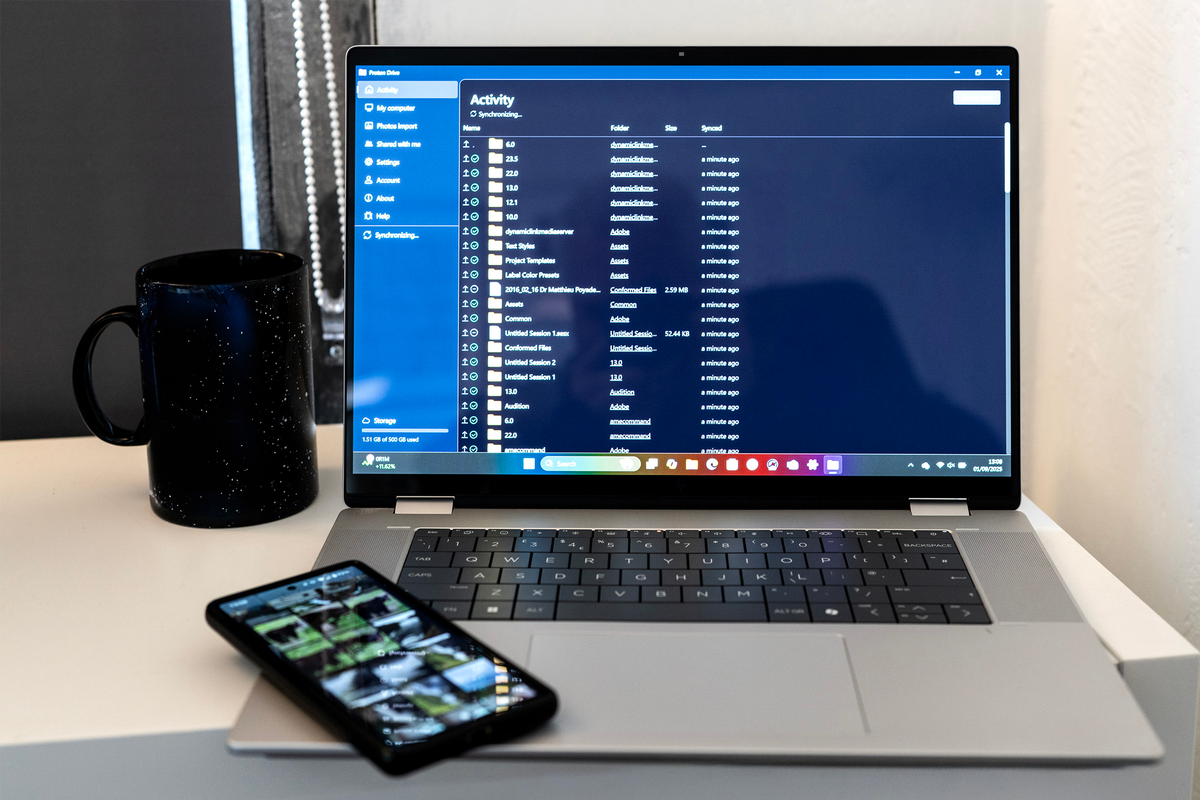
When you think of cloud storage systems, your mind immediately goes to OneDrive, iCloud and Google Drive. There are other options, of course, such as Dropbox, Sync or iDrive, but the fact the big three choices are run by big tech platform holders can’t escape notice. If you want to escape the Silicon Valley hegemony and try to keep your data somewhere with a focus on privacy, Proton Drive can look like a good choice.
Proton is an idea that came out of CERN, the home of the World Wide Web back in 1989, and is now a company based in Switzerland, where the privacy laws are strong. Its first product, Proton Mail, came out in 2014, joined by Proton Drive in 2019 following a crowdfunding campaign and an EU grant. Initially, the service was browser-based - it didn’t get mobile apps until the end of 2022 and a Windows app came in 2023 - but now it rivals the big American corporation in terms of features, such as version control for files, automatic photo backup, and end-to-end encryption. Beyond this, the Proton ecosystem has expanded to include a VPN, password manager and calendar.
It’s also very clear about what it does with the data you store there, which is basically nothing. It doesn’t use your documents to train LLM chatbots, and uses zero-access encryption so that not even Proton staff can get into your files, so will appeal to anyone who’s worried about the security of their cloud data.
How I tested
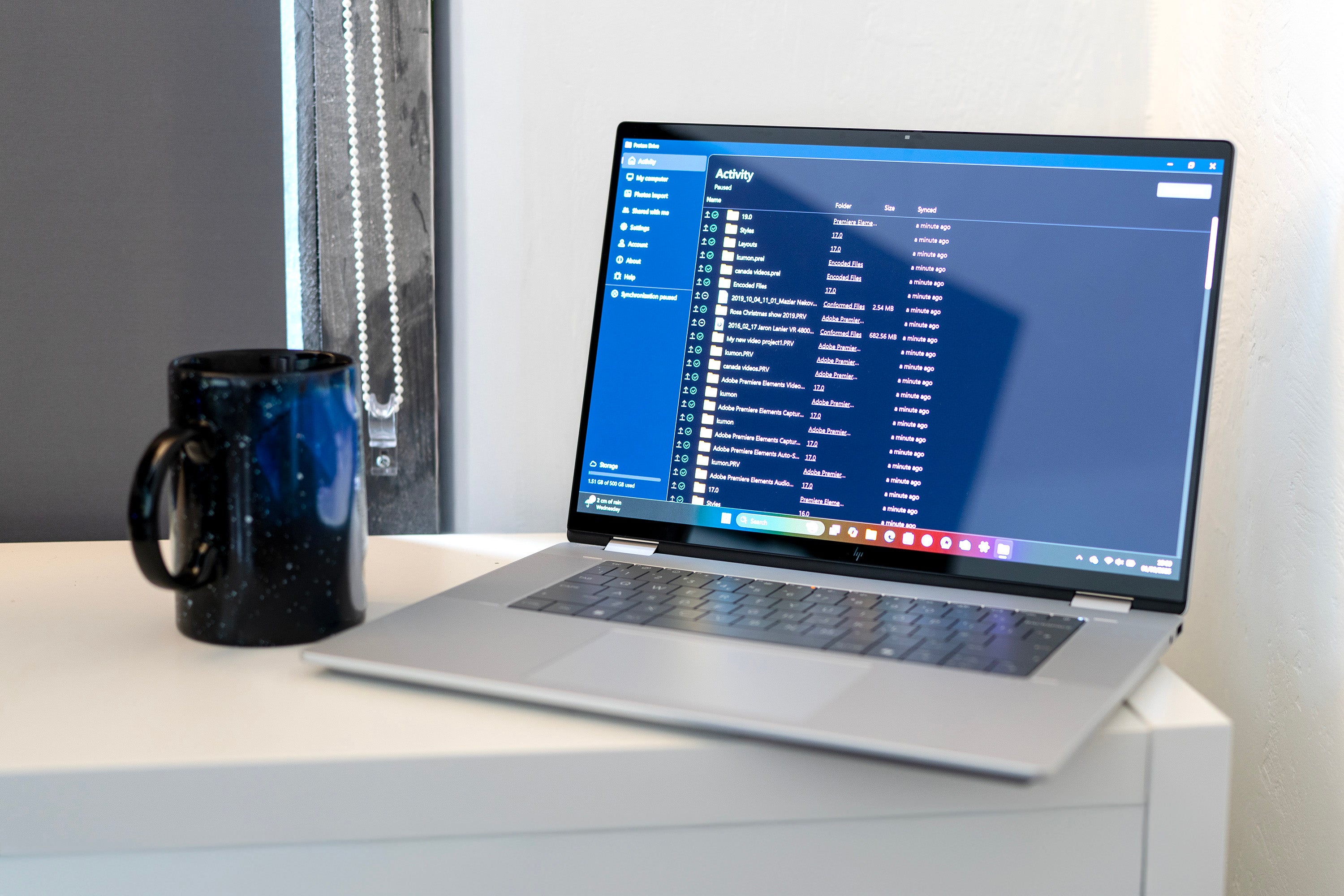
I installed Proton Drive (with an ‘unlimited’ plan) on a Windows 11 PC and an Android phone, then put all the features to the test, comparing them against similar offerings from Google and Microsoft. During testing, I considered the following criteria…
- Ease of use: I looked at how quick and easy the app was to set up, navigate and use.
- Speed: I assessed how fast the features ran. With a 600Mbps fibre-optic internet connection, I was not expecting a network bottleneck.
- Security: I also considered the levels of encryption and security available, from syncing contacts and files to sharing content.
Why you can trust IndyBest reviews
Ian Evenden has been testing cloud storage platforms for years, comparing everything from file syncing and sharing features to security and ease of use. With a background in computing and tech journalism, he’s reviewed everything from bluetooth speakers to antivirus software for IndyBest since 2021, so he knows what makes a service stand out.
Proton Drive 500GB cloud storage
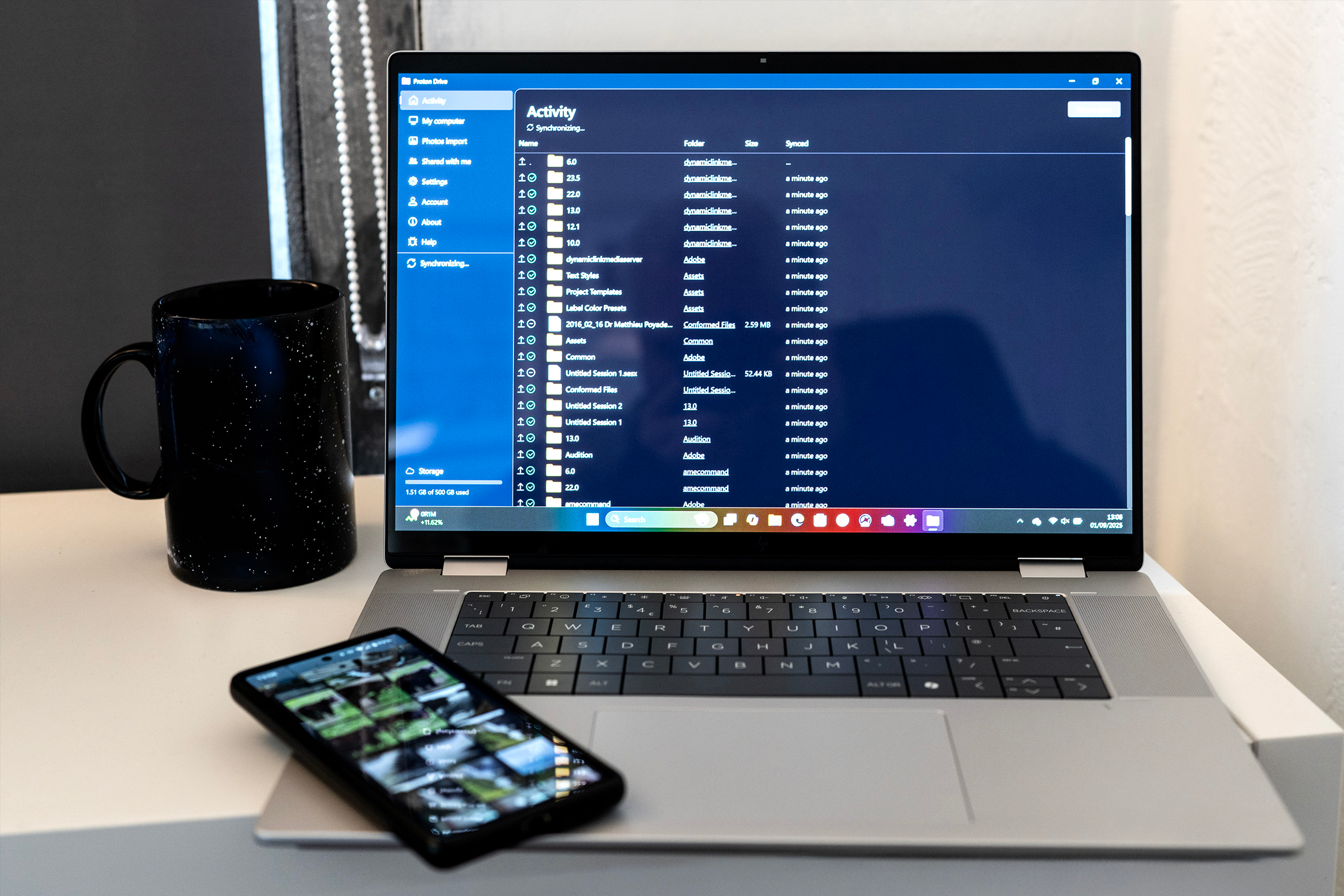
Storage: Up to 3TB (on the family plan)
Compatible with: Windows, macOS, iOS and Android
Why we love it
- Privacy-focused cloud storage
- Lots of security options
- Zero-access encryption
Take note
- Other services can be cheaper
- No spreadsheets or presentations
- No native Linux app
Features
Proton Drive has taken a lead from Google Drive, and become more than just a folder that syncs between your PC and the cloud. In fact, in some places it’s very similar to Google’s offering, which means it's easier to navigate if you’re used to the way that works, though can be less complex.
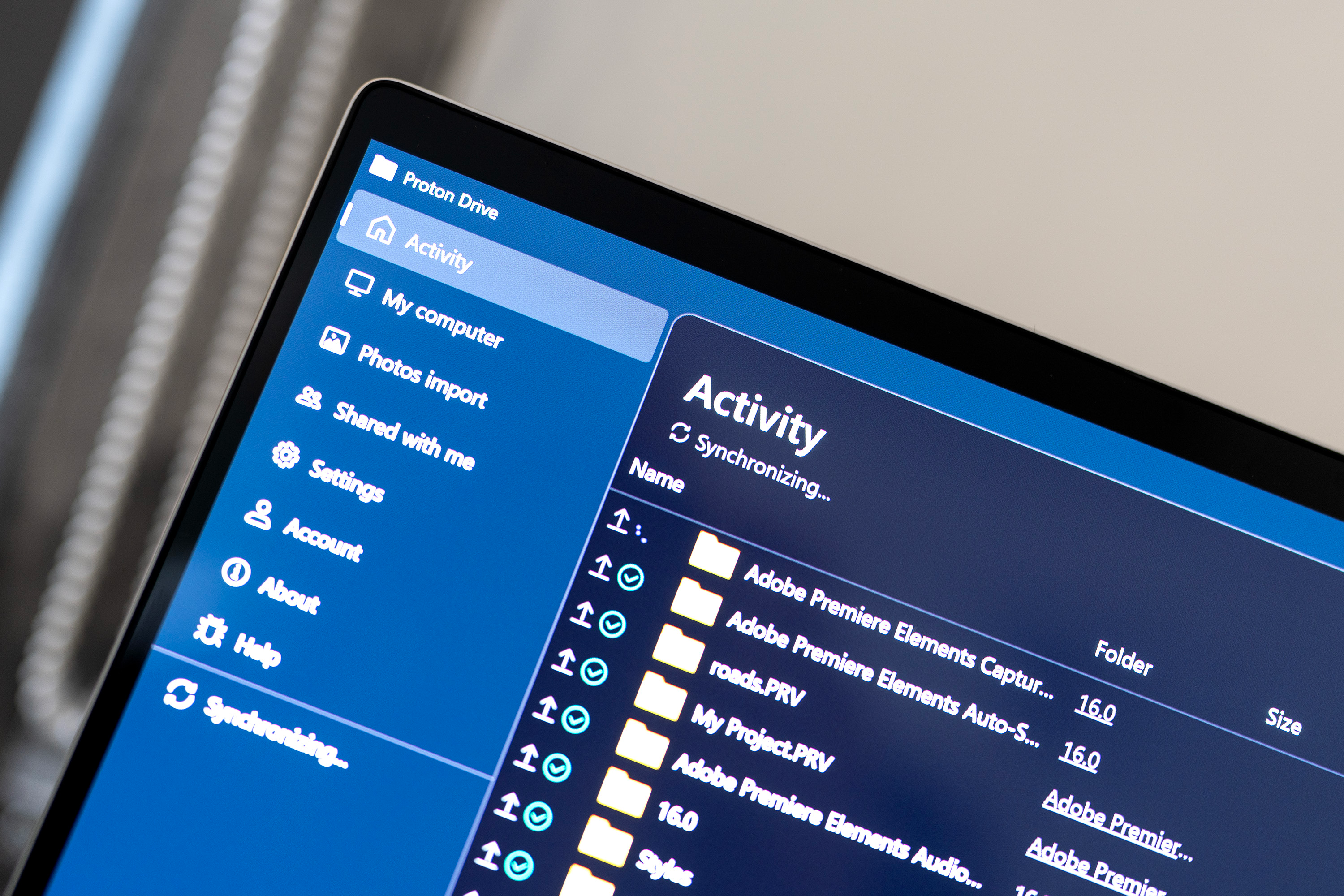
Proton Docs is a prime example of this: where Google will offer you a choice of a text file, spreadsheet or presentation when you hit the ‘new’ button, with Proton you only get the first option, but when it loads it’s quite familiar, with a formatting bar across the top, a drop-down to switch between editing, viewing and suggesting modes, and a share button at the top. And also like Google Drive, this is all free.
A free tier of Proton Drive access exists, but it’s quite limited. You can get 5GB of encrypted cloud storage and the document editor, along with a single email address and some calendars, for the grand price of £0 a month. If you want more than this - say you want to recover previous versions of files that have been over-written long ago, or need more email addresses - then you’re going to have to pay up. There's no free trial of the paid plans, so you might want to step up to the 200GB storage option to dip a toe in the waters. The next step up is the ‘unlimited’ level, which sadly isn’t unlimited at all. It gets you 500GB of storage, which doesn’t seem a lot when you consider Google’s 2TB service is cheaper. You can also get 1TB on the Proton ‘duo’ plan, or 3TB on the Proton family plan (up to six users).
The unlimited plan also gives you access to 15 Proton Mail addresses, Proton VPN and password manager, and Proton’s Sentinel high-security program, which aims to prevent suspicious login attempts and make it harder for hackers to take over your account. If you’re a “journalist, activist, executive, or someone who deals with sensitive data and communications”, Proton recommends you use Sentinel, though it’s not on by default. For most people, a strong password and two-factor authorisation will be enough, and while Proton has its own authenticator app you can use Google’s or a different one if you already have it set up on your phone. Get locked out of your account, and you have options to recover it, including a recovery kit you can download in advance and keep safe.
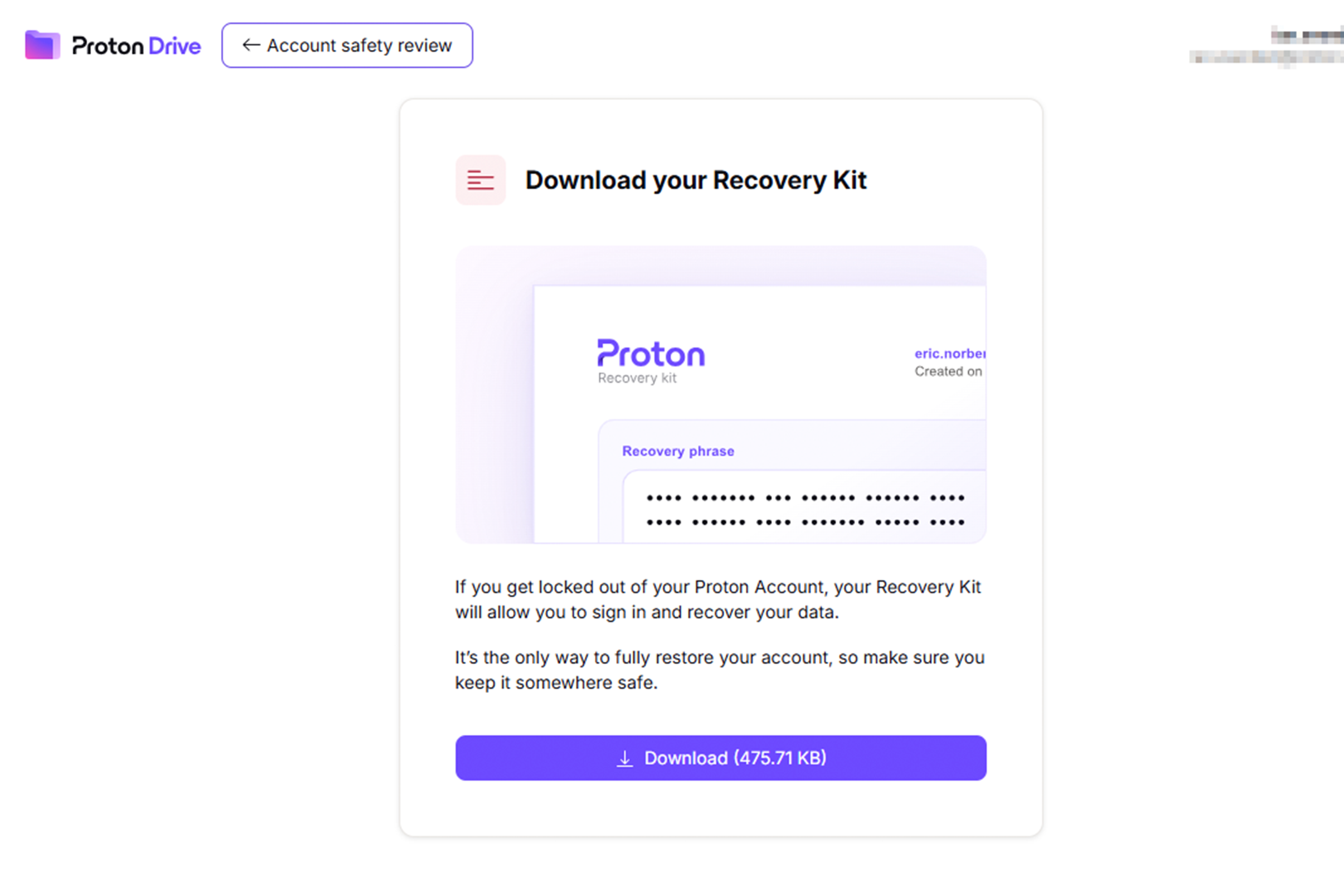
Proton is very big on security, and along with Sentinel offers Dark Web Monitoring to alert you if your personal information is found in places it shouldn’t be. You also get very granular logging, showing you sign-in attempts and changes to things like account recovery, and if you’ve activated Sentinel you can see the IP address and inferred location of these. You can revoke the access of web accounts and apps that have logged in, so if you’re suspicious of an app or browser session you don’t recognise you can cut it off.
Finally there's version history, which can be fine-tuned to keep older versions of your files for as long as 10 years if you want it to (it’s limited to seven days for the free plan), or turned off completely. These versions count toward your storage limit, so it might pay to be careful here unless you’re sure you need it.
Performance
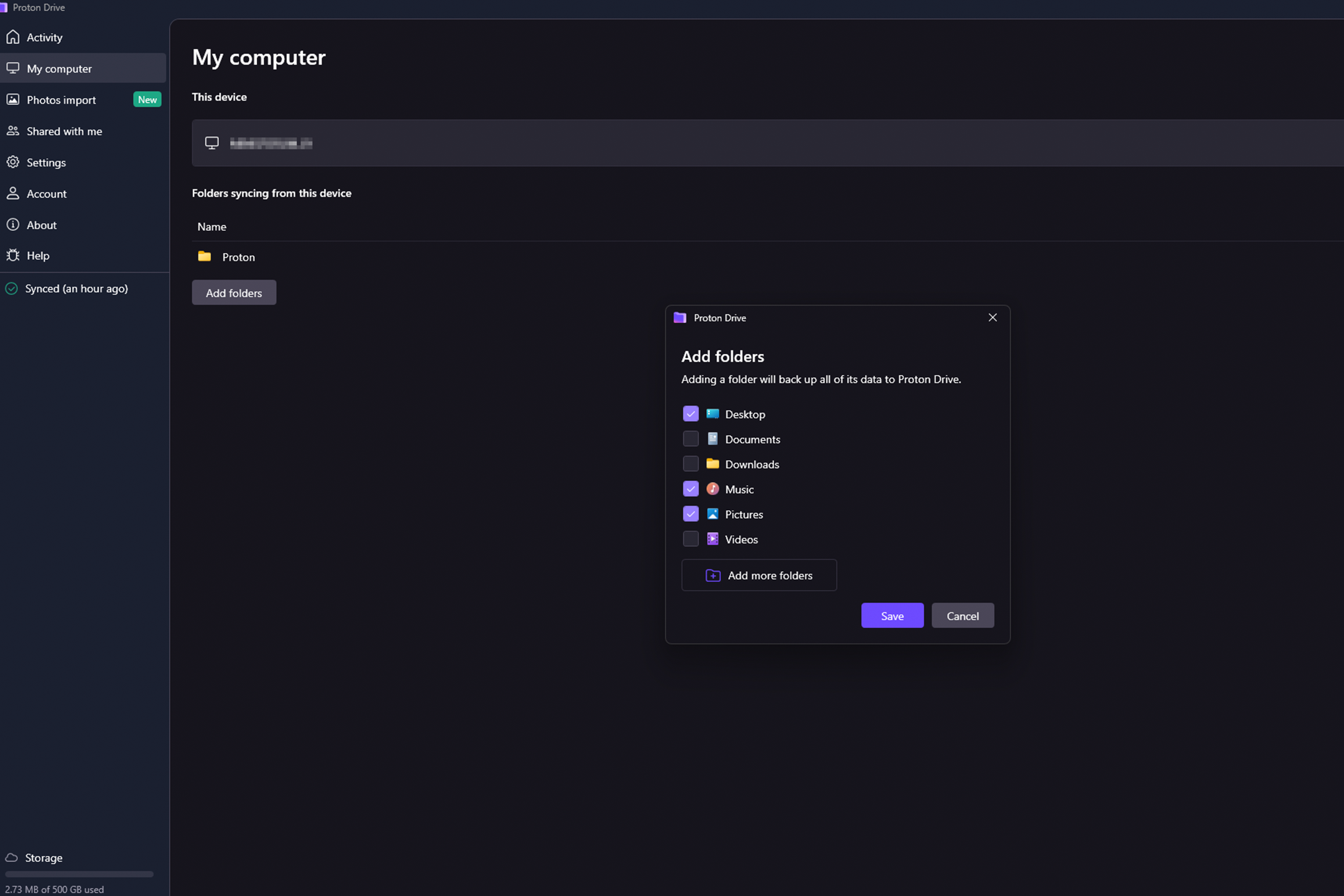
In use, there's little to divide Proton Drive from Google or Microsoft’s services apart from the fact it uses a different app. It’s easy to set up, though the Easy Switch system that brings auto-forwarding from Gmail and will import your contacts and calendars from Outlook, Google, Yahoo and more doesn’t extend to your files. Instead, you can quickly set up synced folders on your PC, choosing from a list of common targets such as Documents or Pictures with the ability to add your own, including those you’ve downloaded from Google Takeout. It offers on-demand sync, known here as ‘optimized storage’, which keeps your files in the cloud but visible on your device to save on local storage space, downloading them when you try to access them.
The Proton Drive app runs in the background on Windows, with the option to open at startup if you want it to, and largely won’t bother you once it’s configured unless it needs to send you a notification about someone sharing a file, which is achieved via a system of adding people directly or generating a public link. Proton’s documents have collaboration features, so multiple users can work together to edit a file, with lots of permissions and access levels so you have control over who can do what. There's change-tracking and version control, but the fact Proton Drive only offers word processing files is a distinct limitation when compared to others - hopefully spreadsheets and graphics will make an appearance in the future.
Apps are available for Windows, macOS, iOS and Android, and you can access your files through a browser too, though the lack of a native Linux app is striking for a service built around rejecting the big tech firms. On mobile, the app can automatically back up your phone photos if you allow it to, with control over which folders get the backup treatment. Otherwise, it allows you to access the files backed up from your PC as well as any text documents you’ve created, though sadly you can’t view your backed-up photos through the PC app, only through a browser.
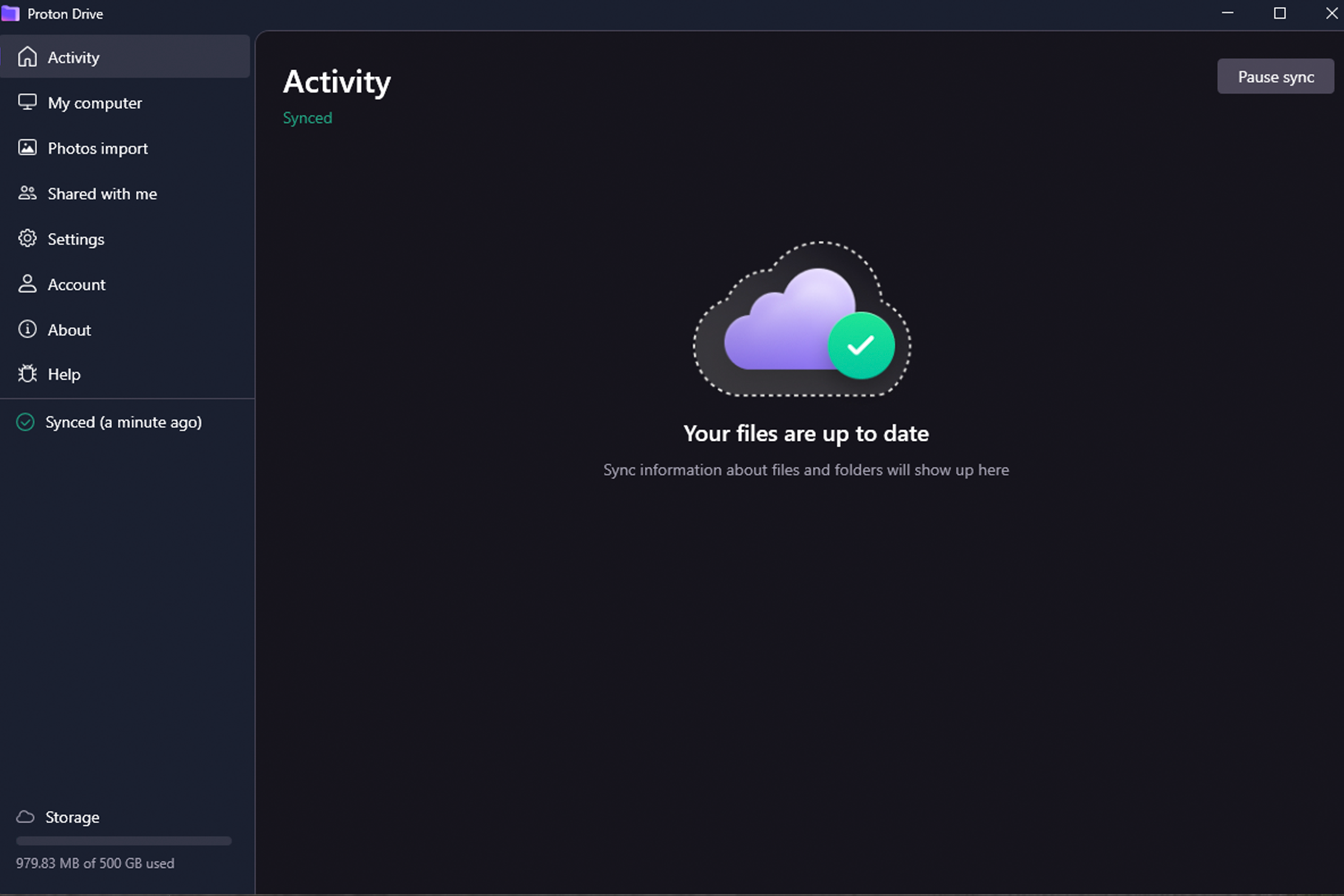
In use, Proton Drive doesn’t seem to be any slower than Google Drive or OneDrive. It uploaded and synced folders full of small files speedily, making sure to tell us it was encrypting them too, though performance here will be governed by the speed of your internet connection as much as anything else and the app doesn’t tell you the rate at which it’s uploading. It tells you the time since the last sync as well as how much cloud storage space is remaining, and there's an easily accessible pause button if you want it to stop for any reason. The only annoyance came in the form of a ‘Some items failed to synchronize’ message, which doesn’t do anything when clicked on - in an ideal world it would show you the problem files, explain why they’re not syncing, and suggest ways to fix it.
Buy now £8.19, Proton.me
Should you get Proton Drive?
Proton’s absolute focus on security is what makes Proton Drive stand out from other cloud storage providers. That’s not to say the others aren’t secure, but Proton puts its security features front and centre and makes a selling point of them. Compared to the other big players in this field it can feel like a work in progress - only offering word processing documents rather than a full browser-based office suite is the main root of this complaint - but there's clearly nothing unfinished about its encryption and security. Using it may tear you away from established ecosystems from Apple, Google and Microsoft (and the lack of a Linux app is critical here, as that platform isn’t affiliated with the big players) which may be the point for some users, but for the rest of us it’s a solid cloud storage option that gives a bit of extra peace of mind.
Looking to upgrade your security services? Here are the best VPNs available to download right now







